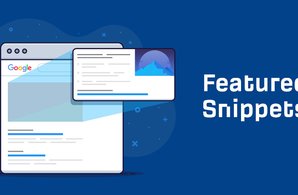How to Optimize for “People Also Ask”
- Home
- Knowledge Sharing
- How to Optimize for “People Also Ask”
What are People Also Ask Boxes?
Before we discuss PAA's impact on SEO, it's worth defining what this section entails.
With Google's People Also Ask (PAA) feature, users can find answers to questions related to their original keywords. Typically, these questions appear as drop-down menus that can be expanded to show additional questions and answers.
How Do You Feature in People Also Ask?
Search engines like Google aim to provide users with the most accurate and helpful answers to their queries. Therefore, websites that offer clear, concise, and useful responses to frequently asked questions in their niche often appear at the top of Google's search engine results.
Often, this looks like:

These questions may also relate to your brand overall, or cover a particular topic. You can also create a separate knowledge base page, or incorporate brief FAQ sections into existing pages, such as the homepage or product pages.
An optimized FAQ section has significant potential to increase traffic to your website through search engines. It's also a great way to foster user engagement and boost conversion rates on your site.
Here's an example of how Google presents results when you input a question - results for "Optimizing FAQs for SEO" appear as:

However, this is only beneficial when optimized for relevant keywords and well-designed from a UX perspective. Simply dumping a bunch of questions exported from a keyword tool and providing quick answers on a page is not the best approach for achieving your Toronto SEO goals.
Importance of FAQs in SEO Strategy
When you write an FAQ section to address your customers' questions, you present high-quality and up-to-date content. This is positively evaluated in SERPs, and can improve your site's ranking.
Several key benefits of FAQs include:
- Enhancing user interaction and meeting your customers' needs.
- Increasing the level of quality and relevant traffic.
- Improving website visit duration and conversion rates.
- Reducing the workload of your customer support team
A well-crafted FAQ page can assist potential customers in obtaining all the necessary information about your brand and products before making a purchase. It can educate, inform, and naturally guide users through your website's content towards achieving your objectives and desired outcomes.
Additionally, it offers some extra benefits for SEO.
Where Do You Find Questions to Answer?
Researching niche questions is the most powerful source of content inspiration. Analyze what people struggle to understand when it comes to your industry, and how you can best assist them.
These questions can be categorized into:
- General Questions : These encompass standard terms you can use to describe your services and their meanings.
- Practical Questions : These instructions help users navigate your site better and accomplish specific goals more quickly.
- Brand-Focused Questions : Here, you can prepare questions related to your brand. This can include details about your operations, the cost of services or products, etc.
In most cases, you don't need to write lengthy explanations, as people seeking them look for quick, easy-to-understand answers.

Keyword Optimization Strategies
Selecting the right keywords for your FAQ section is crucial for achieving favourable SEO outcomes.
Begin by conducting thorough keyword research to identify the terms and phrases your target audience is using to search for information related to your niche.
- Utilize keyword research tools, such as Google Keyword Planner, SEMrush, or Ahrefs, to explore relevant keywords, assess their search volume, and evaluate their competitiveness.
- Look for long-tail keywords and specific questions that align with your content and address common queries users may have. Additionally, consider analyzing competitor FAQs to identify gaps or opportunities for differentiation.
- Aim for a mix of high-volume keywords to attract broader traffic and more targeted, low-competition keywords to capture niche audiences.
- Once you've compiled a list of potential keywords, prioritize those that have a good balance of search volume, relevance to your content, and achievable ranking potential.
Review and update your keyword strategy regularly based on changes in search trends and user behaviour in order to ensure your FAQ remains optimized for SEO success.
Implementing Schema Markup
Implementing schema markup for your FAQ page can enhance your website's visibility and increase its authority.
What exactly is Schema Markup? A Schema Markup is a specialized markup that you can add to the code of a webpage containing a list of questions and answers. Google then reads this markup, and uses it to create an enhanced snippet.
This can increase the chances of your content appearing in the search results under the "People also ask" section.

You can place FAQ schema markup on your website in two locations, depending on how you've implemented them on your site:
- FAQ pages
- Pages with a FAQ section
There are two ways to implement a schema: microdata, or JSON-LD. You can choose either method, but it's important to stick to one option, and not mix them to avoid errors and ensure the correct display of the schema.

After you've added the markup to your site, we strongly recommend verifying it.
You can test your schema using Google's Rich Results Test . It will scan the added schema and display results, showing whether or not everything is displayed correctly, or if there are any errors.
Let's sum it up
- Explore your niche and research frequently asked questions. Dive into your experience and find recurring questions you always answer.
- Create your FAQ by jotting down questions and answers. Be concise, precise, and, most importantly, helpful. Remember, Google loves good helpers.
- Place these frequently asked questions on your website. Ensure it's visually appealing and easy to navigate.
- Utilize structured Schema data to make it easier for search engines to understand your frequently asked questions.
- Use a schema validation tool to check your work, then submit the new or updated page to Google's Search Console.
FAQs are a powerful but often overlooked content opportunity. Studying and optimizing your audience's common questions can increase organic visibility and enhance user engagement. Want more exposure & leads/sales through SEO? Contact our experts and we will set up a free consultation.






